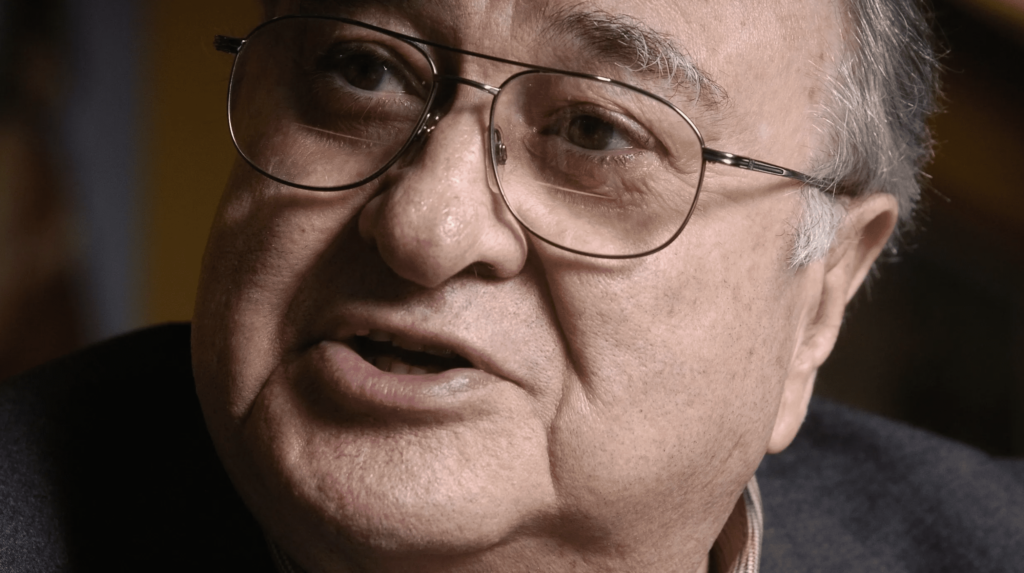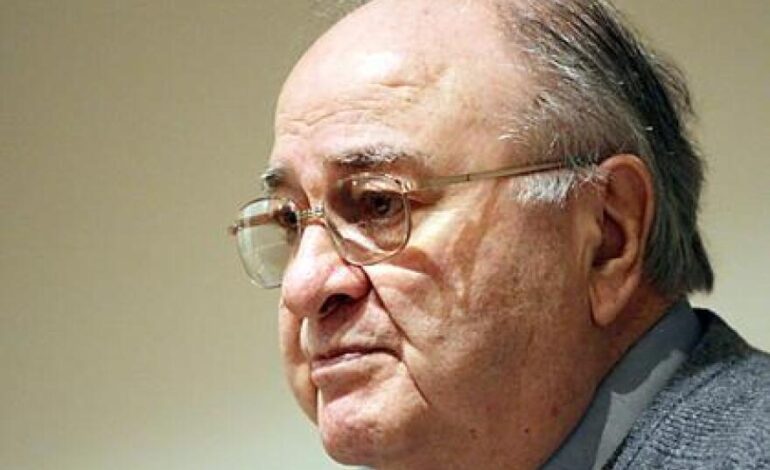James Abourezk, who served as a Democrat in the U.S. House of Representatives and the Senate, representing South Dakota, is entering hospice care, according to a release from the family.
The family said Abourezk, who will turn 92 on Friday, was released from a Sioux Falls hospital and will enter the care of a hospice team, along with his wife, Sanaa, and family members, at his home.
Abourezk founded The American Arab Anti-Discrimination Committee in 1980 and was its first chairperson. He established the organization to become the preeminent grass-roots organization of the Arab American community nationwide.
Abourezk is an attorney and is the first Arab American to serve as a United States senator after serving a term in the House of Representatives.
He played an essential role in leading the Arab American community for many years, significantly contributing to the community nationwide. He has paved the way for others through his work and trailblazing leadership. Abourezk is also recognized as a leading advocate for the rights of Native Americans.
He served in the U.S. House of Representatives from 1971 to 1973, representing the state’s now-obsolete Second Congressional District, which was eliminated in 1983.
Abourezk later shifted to the U.S. Senate, becoming the first U.S. senator of Lebanese descent, in 1973. He served until 1979 before retiring from politics. President Biden, then a senator from Delaware during Abourezk’s term, was a former seat mate.

James Abourezk
Abourezk is the first Arab American to serve as a U.S. senator after serving a term in the House of Representatives. He founded the American Arab Anti-Discrimination Committee in 1980 and was its first chairperson.
Abourezk’s major political accomplishments include writing and having successfully passed the Indian Self-Determination and Education Assistance Act and the American Indian Religious Freedom Act.
The Indian Child Welfare Act, a law passed in 1978 that gives tribal governments executive jurisdiction over adoption and custody of Native American children on reservations, is often considered one of his capstone achievements as a legislator.
Outside of drafting legislation, Abourezk was also involved in major political events. Alongside the late George McGovern, Abourezk traveled to Wounded Knee in 1973 to aid in negotiations between the U.S. marshals and FBI agents and American Indian leaders.
Then, in 1977, Abourezk and McGovern again teamed up to take a group of University of South Dakota and South Dakota State basketball players to Cuba to play the country’s national team. He later went on to meet former President Fidel Castro.
Following his retirement, Abourezk continued to advocate for the act and acted as a witness in some court cases based on his legislation.
He also wrote two books, Advise and Dissent and Through Different Eyes. The former book revealed that the Office of Special Prosecutor, a position created after the Watergate Scandal to investigate conflicts between a president and the attorney general, has ties to one of his staffers, according to past Argus Leader reporting.
Abourezk was born at home in Wood, South Dakota, which was at one time part of the Rosebud Sioux Indian Reservation, in 1931. His parents, Charles and Lena Abourezk, immigrated from Lebanon. He is married to Sioux Falls restaurateur Sanaa Abourezk and has four children, Charles Abourezk, Nikki Pipe On Head, Paul Abourezk and Alya Abourezk. He also has one stepdaughter, Chelsea Machado, and many grandchildren and great-grandchildren.






Leave a Reply